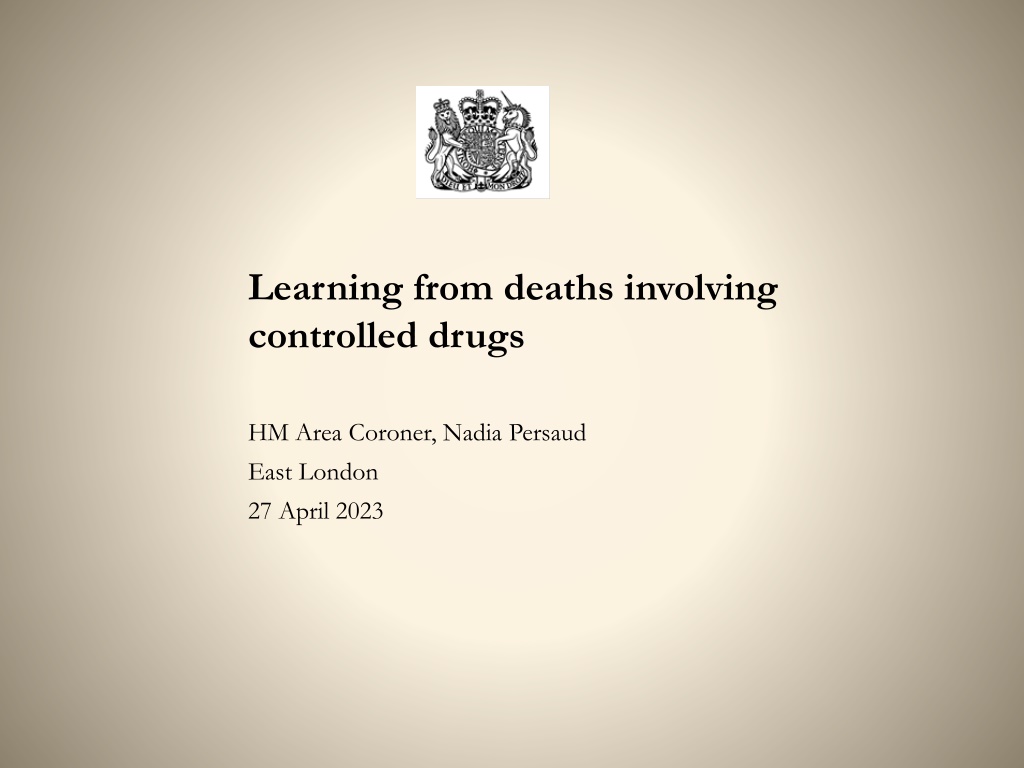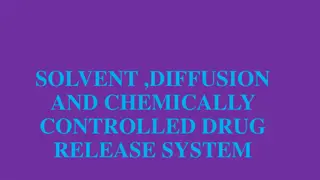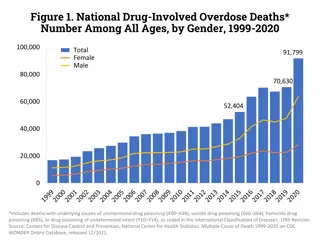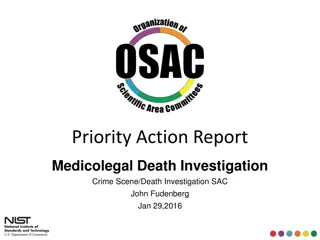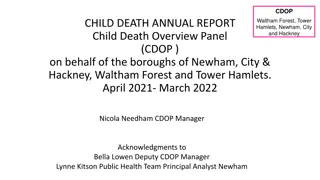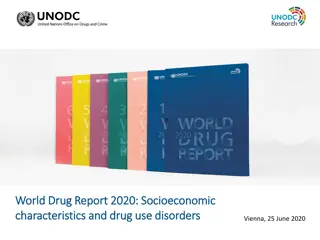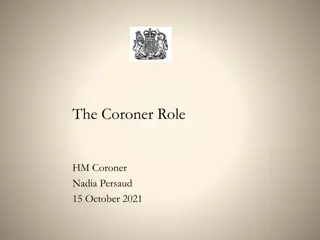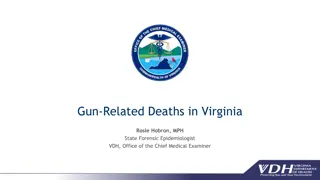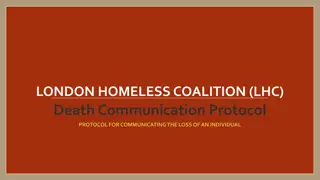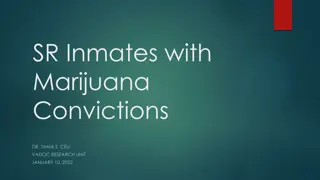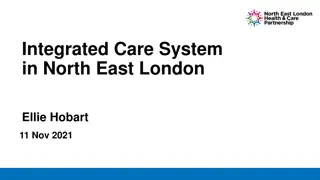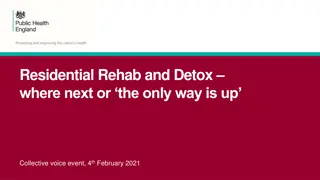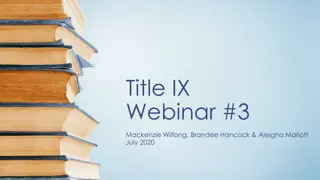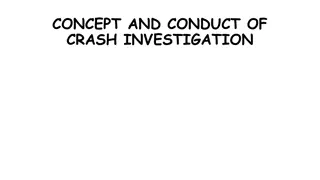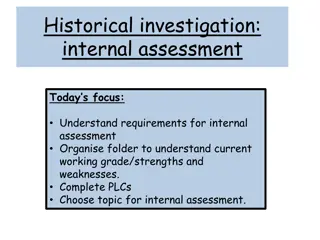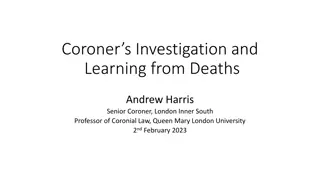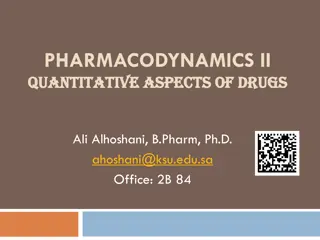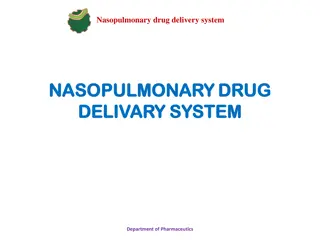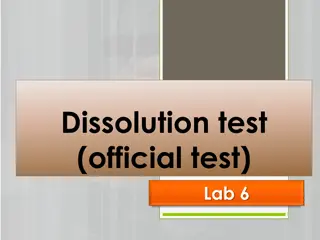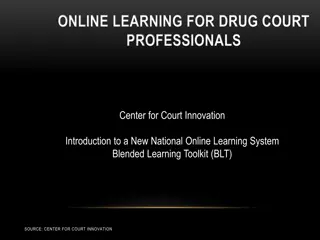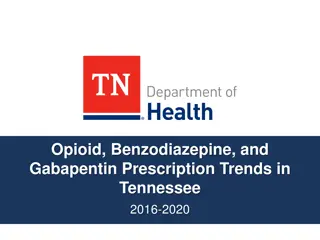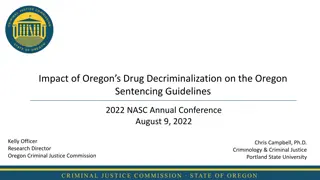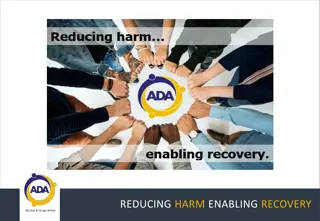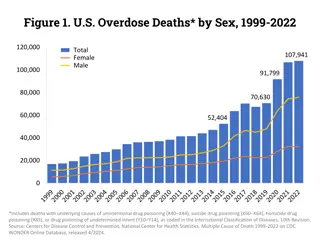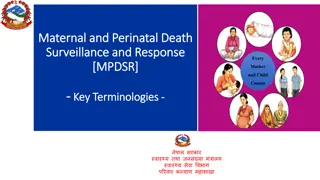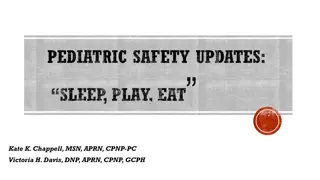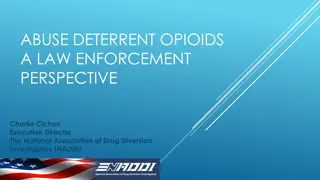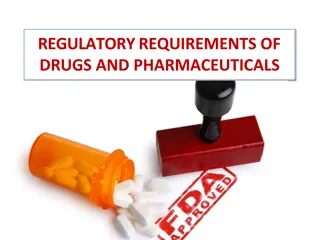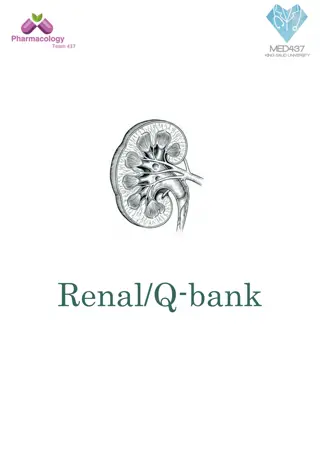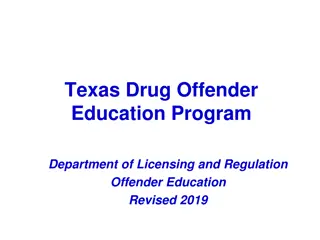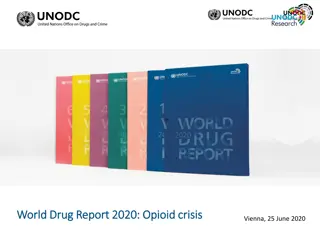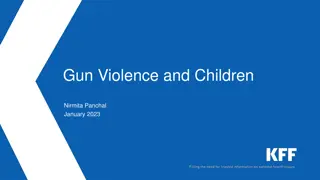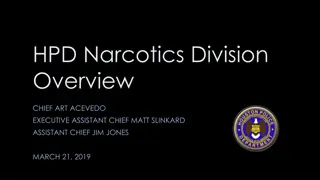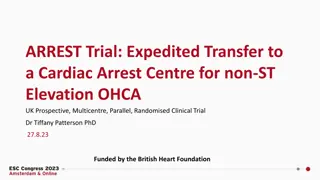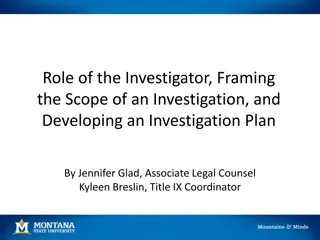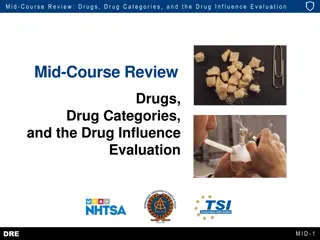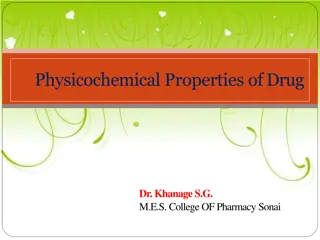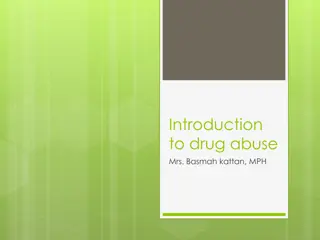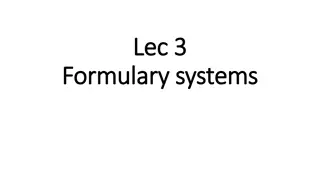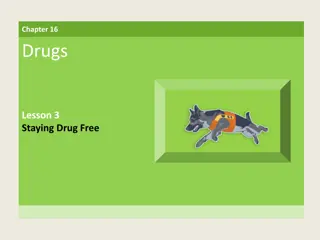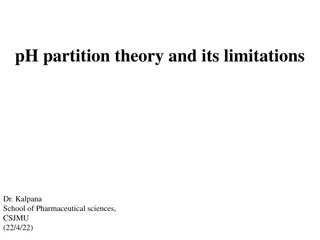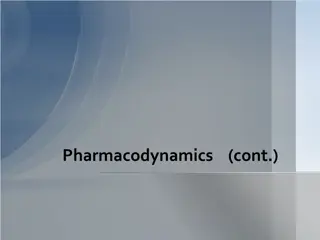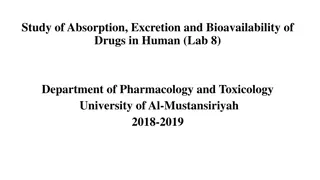Understanding the Investigation Process of Controlled Drug-Related Deaths in East London
This information provides insights into the investigation procedures concerning deaths linked to controlled drugs in East London, focusing on the responsibilities of coroners, duty to investigate, notification requirements, order of investigations, and evidence gathering. It highlights the key steps involved in investigating such deaths and the importance of thorough examinations to prevent future fatalities. The content emphasizes the significance of post-mortems, toxicology reports, medical records, and witness statements to gather essential evidence in understanding and addressing these tragic incidents.
Download Presentation

Please find below an Image/Link to download the presentation.
The content on the website is provided AS IS for your information and personal use only. It may not be sold, licensed, or shared on other websites without obtaining consent from the author. Download presentation by click this link. If you encounter any issues during the download, it is possible that the publisher has removed the file from their server.
E N D
Presentation Transcript
Learning from deaths involving controlled drugs HM Area Coroner, Nadia Persaud East London 27 April 2023
OVERVIEW Coronial investigations and notification of deaths Controlled drug related deaths themes raised Preventing Future Deaths Coroner s role in providing information about controlled drug-related deaths
DUTY TO INVESTIGATE Section 1 of the 2009 Act confirms a duty to investigate in the following circumstances: Where the body is lying in the coroner s area and there is reason to suspect: The deceased died a violent or unnatural death, or Cause of death is unknown, or The deceased died in custody or state detention
NOTIFICATION TO THE CORONER Notification of Deaths Regulations 2019 places a duty upon registered medical professional to report a death to the coroner: Circumstances in which the duty to notify arises 3. (1) The circumstances are (a)the registered medical practitioner suspects that that the person s death was due to (i)poisoning, including by an otherwise benign substance; (ii)exposure to or contact with a toxic substance; (iii)the use of a medicinal product, controlled drug or psychoactive substance; (viii)the person undergoing a treatment or procedure of a medical or similar nature; or (b)the registered medical practitioner suspects that the person s death was unnatural but does not fall within any of the circumstances listed in sub-paragraph (a); (c)the registered medical practitioner (ii)despite taking reasonable steps to determine the cause of death, considers that the cause of death is unknown;
ORDER OF INVESTIGATIONS Police investigations will have primacy Inquest will be opened and adjourned If no charges are to be brought, inquest will proceed If charges are brought and Crown Court trial takes place, the inquest may not be resumed Internal investigation reports should be completed before the inquest is heard
EVIDENCE TO BE GATHERED Post-mortem and toxicology Medical records, including prescription charts Controlled drug stock logs Empty vials of controlled drugs in the community setting Any remaining vials of controlled drugs in the community setting Policies around controlled drug administration LAS records to see whether pre-hospital opiates were given Witness statements from all key staff Other investigations reports
WHAT IS AN INQUEST? An inquest is an inquisitorial process for which the coroner is entirely responsible. There are no parties to an inquest. The rules allow various people to participate as interested persons. There are no pleadings in cases whose facts might engage civil liability and no indictment where criminal responsibility is suspected or clear. The inquest is not an adversarial proceeding. A coroner is a judicial officer working within a statutory framework. R (Hambleton) v Coroner for the Birmingham Inquests [2018] EWCA Civ 2081
THEMES RELATING TO CONTROLLED DRUGS Sharing of information between healthcare professional about a history of misuse of controlled drugs (self-harm) Poor monitoring of repeat prescriptions in primary care Patients amassing large quantities of controlled drugs, such as Tramadol, in their home address concern about inadequate medication supervision of vulnerable patients Lack of face-to-face contact during pandemic and consequent lack of drug testing Concerning combination of medications (e.g., nitrazepam, pregabalin and fentanyl)
THEMES RELATING TO CONTROLLED DRUGS Incorrect use of Fentanyl patches (e.g., using in sauna/hot bath) Incorrect dose administration of controlled drugs by district nurses in the community no second nurse required in community setting Poor communication between services in relation to the prescribing of pain- relieving medication Poor communication between services around the administration of pain-relieving medication (e.g., district nurses and carers) Signs of opiate toxicity not explained to patients, families and carers Healthcare professionals accessing controlled drugs and using for self-harm Incorrect dispensing of doses by pharmacists (60mg instead of 10mg)
INQUEST CONCLUSIONS Drug related Accident/misadventure Narrative conclusion Unlawful killing
PREVENTING FUTURE DEATHS The Coroner has a duty to write a report following an inquest if it appears there is a risk of other deaths occurring in similar circumstances. This is known as a 'report under regulation 28 or a Preventing Future Deaths report. The report is sent to the people or organisations who are in a position to take action to reduce the risk. They must reply within 56 days. A copy of the report and the replies will be sent to the family, Chief Coroner and other interested persons/organisations
PREVENTING FUTURE DEATHS A PFD is not a punitive measure it is a public interest tool for learning The fact of a PFD report is not an indication that the organisation s internal investigation has failed Inquest provides the perfect opportunity for learning. Bishop Jones stated that there needs to be a cultural shift and public bodies need to approach inquests as an opportunity to learn Proactive involvement by the specialists in determining the content of the PFD report is likely to improve the quality
PREVENTING FUTURE DEATHS Dame Elish Angiolini recommended an Office for Article 2 Compliance, which would thematically review coroner s PFD reports Chief Coroner s office publish reports. Is there scope for greater analysis and wider sharing of good practice? Chief Coroner s guidance on PFDs
CORONERS ROLE IN PROVIDING INFORMATION ABOUT DRUG DEATHS Coroners after inquest certificates are sent to the Office of National Statistics (ONS) ONS publish annual detail of deaths related to drug poisoning in England & Wales Information relating to any drug deaths are provided to St Georges University of London, who run the National Programme on Substance Misuse Deaths No reporting specifically for controlled deaths alone
THANK YOU AND ANY QUESTIONS?
